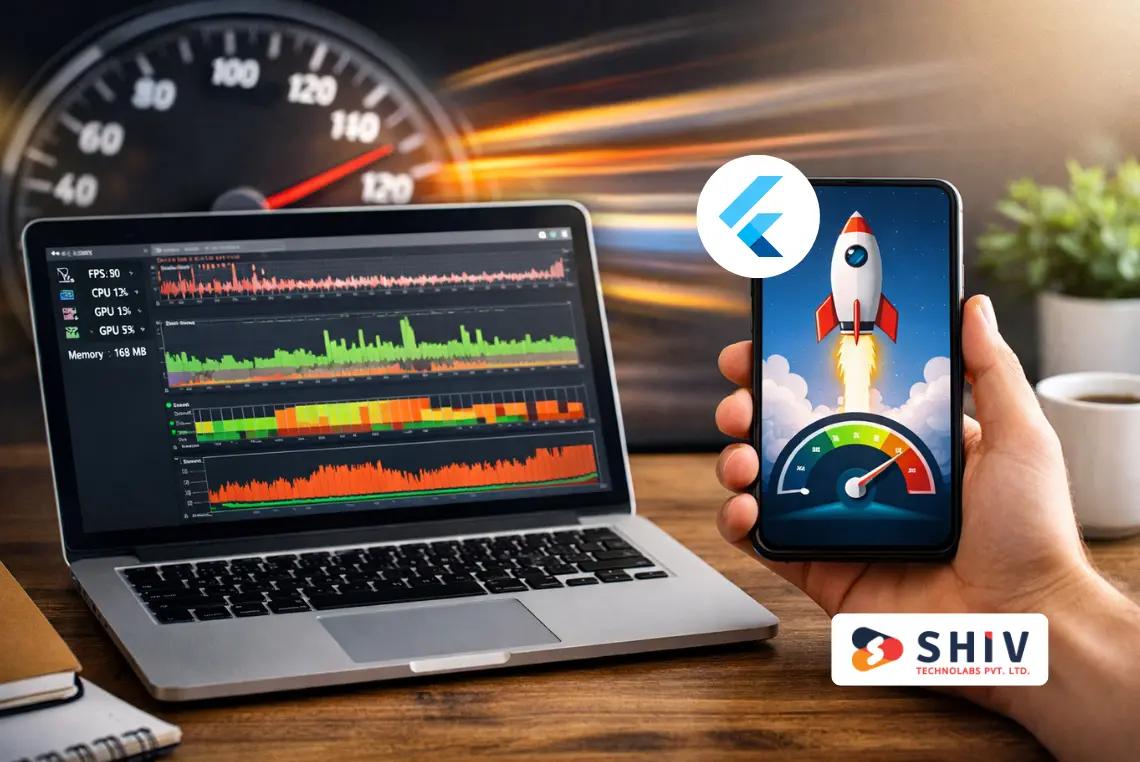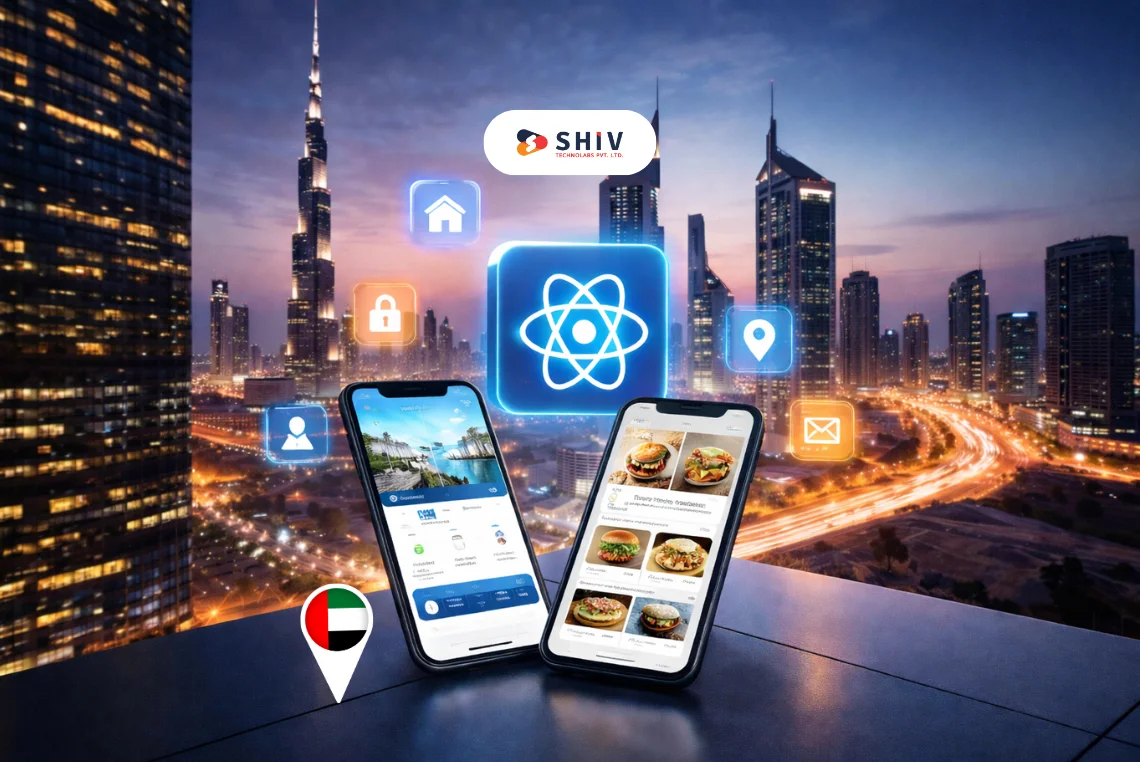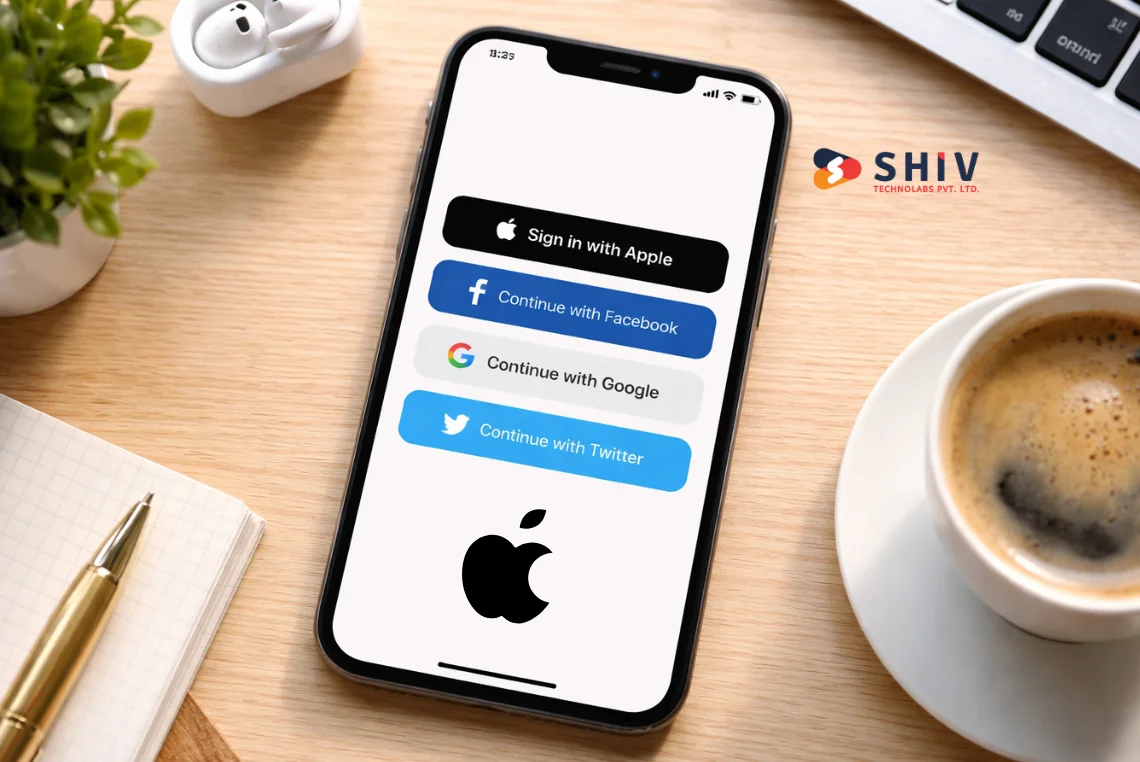Table of Contents
The first mobile app that you develop immediately raises one of the first hard decisions that you face: should you choose React Native, or develop separate native apps of Android and iOS? It is not just about technology, but it defines your budget, development timeline, growth capacity, user enthusiasm and staff requirements.
Here is what to think about: the use of mobile devices is only increasing. The smartphone users will reach more than 6.92 billion in the world by 2025.
With this huge opportunity, it is important to have your app launch strategy in the right direction. React Native, but (cross-platform) and Native (platform-specific) are two good options. Which strategy fits your business objectives? We shall look at each of these two options.
What Is React Native App Development?
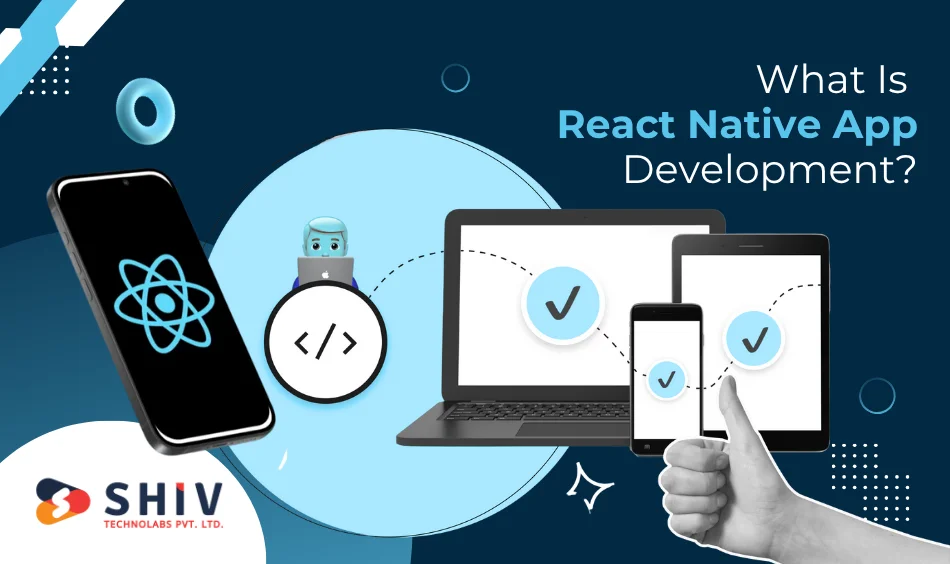
At the beginning of 2015, React Native was an open-source project by Facebook (now Meta). The principle is simple: programmers code it once using JavaScript or React and deploy the application on iOS and Android.
The framework is not like the usual hybrid apps. The react native for app development reflects the use of real native components instead of web views. This indicates applications are more functional and seem more natural to the users. The approach is suitable when:
- Companies wanting quick launches
- MVPs (Minimum Viable Products)
- Organizations with limited budgets
Teams no longer require knowing various programming languages, since they only require JavaScript and React. It is better to work with a single codebase than two separate projects.
What Is Native App Development?
In native application development, there is a need to create code bases separately in iOS and Android. Every platform has its own programming languages:
- Swift or Objective-C for iOS (Apple)
- Kotlin or Java for Android (Google)
Native apps are perfectly compatible with their operating systems. They provide:
- Maximum performance levels
- Full access to device features (camera, GPS, sensors)
- Complete native API integration
- Platform-perfect UI/UX design
Native development is often adopted by companies whose apps have complex apps, heavy graphics, or intensive processing.
Key Differences: React Native vs Native Development
| Feature | React Native | Native Development |
|---|---|---|
| Codebase | Single codebase for iOS & Android | Separate codebases for each platform |
| Performance | Good, but not equal to native | Best-in-class |
| Development Speed | Faster (one team, one codebase) | Slower (parallel development needed) |
| Cost | Lower (one team) | Higher (two teams) |
| UI Consistency | Decent, slightly less native feel | Perfect match to platform guidelines |
| Community Support | Large and active | Strong platform-specific support |
| Maintenance | Easier with single codebase | More complex |
| Best for | MVPs, startups, simple apps | High-end apps, games, large-scale products |
When to Choose React Native Development
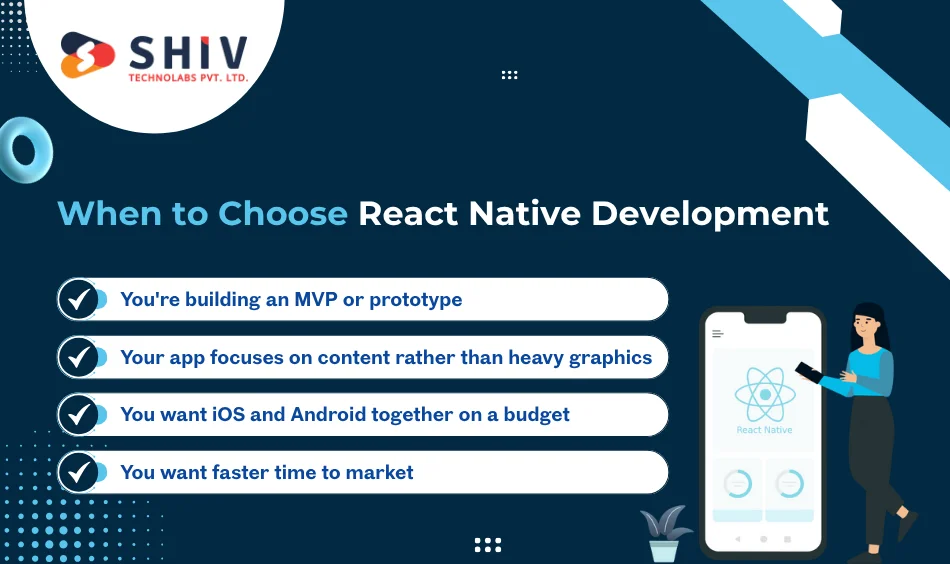
React Native makes sense in these situations:
- You’re building an MVP or prototype
Want to test your idea quickly? Mobile app development with React Native lets you launch working versions on both platforms fast and cheap. - Your app focuses on content rather than heavy graphics
Text-heavy apps, forms, data displays, and simple animations work great with React Native technology. - You want iOS and Android together on a budget
One team can handle both platforms instead of hiring separate developers. This cuts development time and expenses significantly. - You want faster time to market
Getting to users quickly matters more than perfect performance. React Native helps you update and improve your app easily.
When to Choose Native Development
Native development works better when:
- Your app needs high-end graphics (gaming, AR)
Games, augmented reality, or video editing apps need the speed and GPU control that native provides. - You need deep integration with device features
Advanced Bluetooth, biometric security, or real-time location tracking work more reliably with native development. - You’re building a large-scale, long-term product
Apps that will grow and get more complex over time benefit from native’s better scalability and performance. - You have platform-specific design needs
Want your iOS app to feel completely “Apple” and your Android app to feel “Google-y”? Native allows perfect platform experiences.
Real-World Examples
Apps Built with React Native
- Instagram – Used React Native for parts of their app, like post creation. It saved development time across platforms.
- Facebook Ads Manager – One of the first complete apps built with React Native technology.
- Bloomberg – Used it for their consumer app to speed up development.
- Pinterest (prototype stage) – Tested React Native to improve development speed.
Apps Built Natively
- WhatsApp – Picked native to ensure fast communication, low delays, and strong security.
- Uber – Their main rider and driver apps are native to handle complex background tasks.
- Snapchat – Heavy graphics, AR lenses, and animations required native development.
Apps that need speed, quick updates, and cost savings often pick React Native. Apps that demand graphics, reliability, and deep platform features choose native.
Cost Comparison With Estimates
| Factor | React Native | Native (iOS + Android) |
|---|---|---|
| Development Cost | $20,000 – $70,000 | $40,000 – $150,000 |
| Development Time | 3–6 months | 6–10 months (both platforms) |
| Maintenance Cost | Lower (single codebase) | Higher (dual maintenance) |
| Team Size | 2–4 developers | 4–6 developers |
Also read: How much does it cost to develop a react native mobile app
Developer Availability and Hiring
Finding developers for these platforms shows clear differences.
- Easier to find React Native developers due to JavaScript
JavaScript ranks among the most popular programming languages. Many web developers can learn React Native quickly with minimal training. - Native requires separate teams for iOS and Android
Swift developers and Kotlin/Java developers have different skills. Hiring both types increases costs and complexity. - Maintenance and updates are easier with React Native
One update to the shared codebase reduces work, especially for bug fixes and new features.
The react native vs native decision often comes down to team availability and budget. A top react native app development company can handle both platforms with one team, while native development needs separate specialists.
Final Checklist: How to Decide
Go through this checklist. It will point you toward the right choice:
| Question | Best Choice |
|---|---|
| Want to launch fast? | React Native |
| Budget under $50,000? | React Native |
| Need advanced camera, GPS, or sensor integration? | Native |
| Expecting 1M+ monthly users or complex scaling? | Native |
| Need to update and iterate often? | React Native |
| Building a game or AR/VR app? | Native |
| Just testing the idea (MVP)? | React Native |
| Want the app to feel 100% native on each platform? | Native |
Transform Your Online Business with the Best React App Development Team
Choosing React Native is only the beginning of a journey – success lies in having the specialists who understand how to use it well.
At Shiv Technolabs, we have assisted startups and large businesses to launch responsive, scalable, and quick React Native applications in various industries. Regardless of whether you set up a new MVP or revise an existing platform, our team offers:
- Skilled React developers
- UI/UX designers who understand platform differences
- Agile processes that speed up development
We can make your idea a money-making app using half the time and budget.
Comparing native vs react native, it is worth noting that react native can be used to reach both platforms with an android app. This is why React Native as a development code to create an app is appealing to businesses that would like to achieve the biggest exposure with the least investment.
Conclusion
Here’s the truth: there is no one method that always comes out of top. It depends on the purpose of your app, on the performance requirements, and the budget you have available.
- React Native is ideal when you want fast development, cross-platform compatibility and businesses with a limited budget.
- Native development shines when the app is heavy in performance requirements, or when integrating many features, or when the product has long-term design requirements.
There is still a debate on react native vs native, and both can be successful when properly planned. React native mobile apps are faster and cheaper to develop, but native is the most efficient and delivers the best integration on platforms.
Are you still doubtful of your choice? Never make guesses. Reach out to the specialists at Shiv Technolabs. We will assist you creating a winning strategy and a product that will work.
FAQs
Is React Native future-proof for 2025 and beyond?
Yes. Meta supports it with a massive open-source community. React Native keeps improving and powers many popular apps today.
Can I switch from React Native to Native later?
Absolutely. Many companies start with React Native for MVPs and later create platform-specific apps when their product grows.
Which is more secure—Native or React Native?
Both can be secure with proper implementation. Native gives more direct access to platform security features, but React Native apps can be secured too.
Will Apple or Google reject React Native apps?
Not at all. If your app follows their rules and works well, they won’t care what framework you used to build it.





